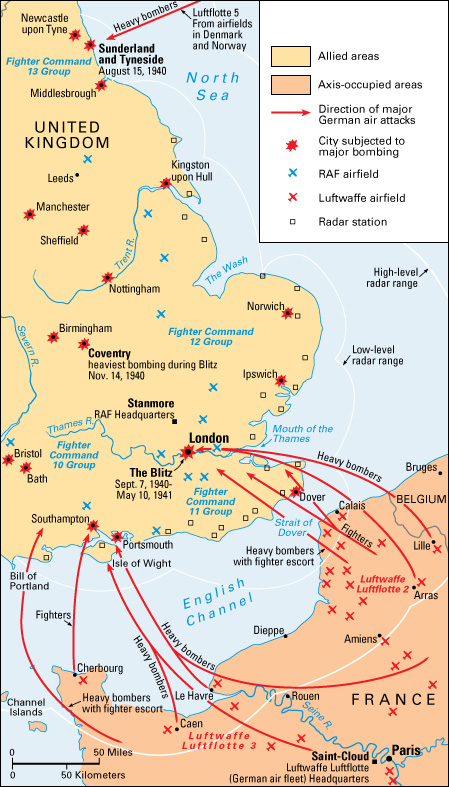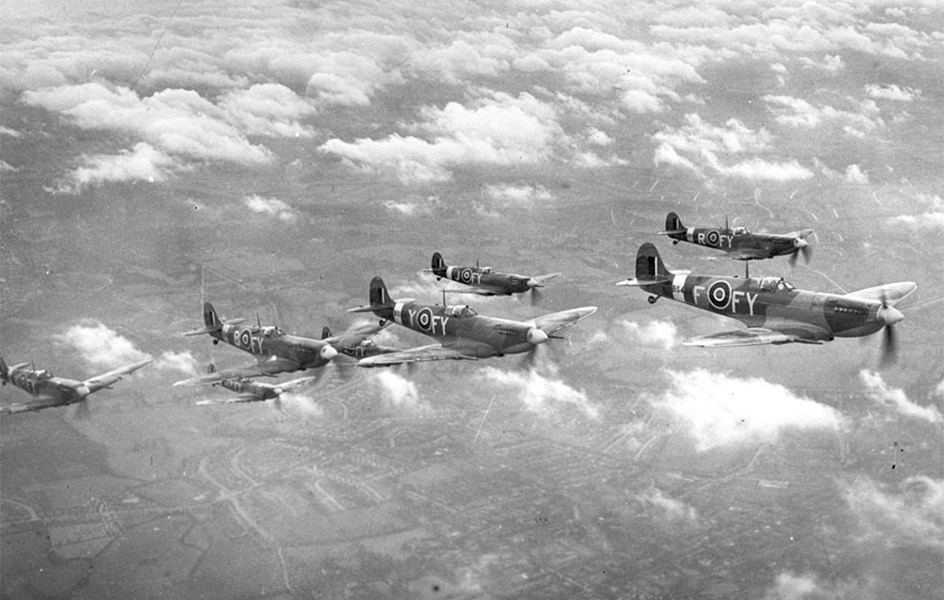Britain, Battle of, was a decisive air conflict between British and German forces during World War II (1939-1945). Having crushed France, Poland, and Czechoslovakia in 1939 and 1940, the Germans had only to defeat the United Kingdom to win the war in western Europe. Hermann Goring, commander of the Luftwaffe (German air force), argued that the Luftwaffe alone could reduce British resistance. Luftwaffe officers believed that an invasion of England would be possible once Germany had destroyed the British Royal Air Force (RAF) and cleared the English Channel of British warships.

The Battle of Britain began on July 10, 1940, when about 60 German aircraft attacked shipping in the English Channel. For the rest of the month, the Luftwaffe tested RAF defenses with repeated attacks on the Dover area. In August, the Luftwaffe extended its attacks to all the air bases in southern England. On August 15, it attacked Tyneside, in northeastern England, with 140 aircraft and launched 800 aircraft against RAF bases in the south. The RAF made 974 attacks on hostile aircraft and fought at least five major air actions. Each side exaggerated the other’s aircraft losses, but the German High Command believed that the British Channel defenses had been effectively weakened.
In September, the Luftwaffe attacked London and the airfields of the Thames Valley. An attack by 400 German aircraft started fires in the London docks, but 53 of the attackers were shot down by the RAF or by antiaircraft fire. On September 15, an enormous force of 1,300 German aircraft made a two-pronged attack against the London docks and the Southampton area. In cloudless skies, the air battle spread over the whole of southern England and lasted all day. The RAF lost 27 aircraft, and the Luftwaffe 56. The most important result of the September 15 raid was that the German High Command realized it could not destroy the British air defenses. A last German effort with a force of 850 aircraft was beaten off by the British at the end of September.
The great success of the British defense was largely due to the high quality of the fighter aircraft used, Spitfires and Hurricanes. In addition, the Luftwaffe lost more pilots than the RAF did, because German pilots who were shot down and survived were usually captured, while British pilots were recovered and returned to service. The relatively large size of the German aircraft also resulted in a larger loss of crew each time a German plane was destroyed. The British use of radar to give early warning of the approach and position of enemy aircraft proved vital as well. The Germans did not have radar, which was a brand-new technology at that time. 
The bravery and endurance of the RAF during the Battle of Britain prompted Sir Winston Churchill’s famous tribute: “Never in the field of human conflict was so much owed by so many to so few.”
